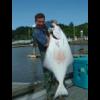 |
Welcome to the Reel Boating Forum.
From Trailer Boaters to Captains to Marine Industry Professionals, the Reel Boating Forum welcomes you to join in with other boaters and fishermen discussing topics including sportfishing, marine electronics, boating safety, boat engines and more. Use our FREE boat classifieds to sell your boat or fishing gear. Marine Industry Vendors are also welcome to register a username and freely post their products or services |


Recommended Posts
Join the conversation
You are welcome to post now and register later. If you have an account, sign in now to post with your account.